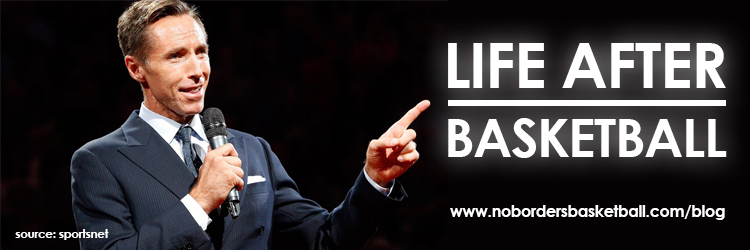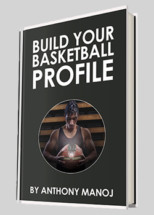Professional basketball is a cut throat industry. When you are no longer useful you find yourself out of a job. Get injured and in most cases you will get replaced and find yourself without a team. So what’s your plan B for life after pro basketball?
If you don’t have a qualification or something to fall back on what happens? All athletes need a plan B, even the rich ones. Remember all those mansions and luxury cars need maintenance so they need to have income coming in after their career ends.
Insight SBS
Just a week ago I was lucky enough to catch a current affairs show; Insight on SBS. I don’t watch any current affair shows but the topic of this particular show sparked my interest. The show was about “life after sport”.
A group of athletes were brought together with current up and coming athletes to speak about their experiences of life after sport. Almost all athletes had dark stories to tell. The majority of athletes are or were suffering from depressions, a lot of athletes felt lonely when they first retired and lacked social skills . Majority of the athletes on the show stated that they didn’t know how to interact with people because they didn’t have anything to say. With the sport out of their life they were struggling to have conversation.
I was super amazed to see that I am going through some of the same emotions these athletes were. I’m not saying I am an elite athlete like the ones interviewed but it was so comforting to know that I am not on my own with this. It also highlighted how much having a psychologist helped me channel some of my competitiveness to other parts of my life. I’ll go over this in more detail in Retirement and My Focus section of this article.
The traps of professional basketball
As I said earlier, professional basketball is cut throat. If you are no longer useful to the team you are gone. I have been in the receiving end of this a few times and it isn’t pleasant.
One of these occasions was when I played for a team in the ABA league (Australia). All through preseason I was the starting point guard. Then I injured myself and was out for a few months.
During the time I was injured the team signed an American import to replace me. I was ok with this but what was cold was the fact that I was taken aside and told that even when I come back I was only on rotation and won’t get much of a game. It was upsetting as I came back strong and as good as I was before I was injured. I was even doing better than all the guards in training but it didn’t matter. I have to say though, it is very rare that a team will keep a player if a replacement is found. So for that, I have to be grateful. I guess!
Retirement and my focus
I have retired from basketball twice now and walked away from the game once. Which means I have had long breaks from competitive basketball.
My first major break from basketball came after a horrible 2005 season with Mornington Breakers. This was also the time I was having major issues with some coaching staff at the Tigers. In all, I was totally spent and didn’t want to play anymore. Mostly due to the coaching staff around me. It was toxic!
The next two retirements were due to injury and the fact that I was out of shape. It was hard mentally to get back and it took me a few years to actually have the state of mind to get myself in shape.
It was after my first retirement that I started working with a psychologist. I got so much out of working with a sports psychologist in college that I reached out to one in Melbourne to help me transition. Life after pro basketball was tough as I didn’t have too many passions outside of basketball. At that time anyway.
My psychologist and I worked on moving my competitiveness into my career. In the years since I have been able to climb to corporate ladder fairly quickly, particularly in the last 2 years. Still, I have to be honest and tell you that it just isn’t the same. I’m back on court and wanting to play representative basketball. Not pro, but a high level of basketball. For me, the curtains on my basketball career haven’t totally fallen yet.
Life after pro basketball
Life after pro basketball for me was ok as I was invited every year to go back to UK and play in a few summer league games. I also got to train with a lot of semi professional teams. As far as being around professionals I was still deep in it. In my playing career I didn’t get a lot of court time so there wasn’t much there to miss.
I can’t really tell you what life is like after basketball as I don’t plan to be away from it. I love the game as much as I did when I was first starting to play the game. However, I know a time will come where I can no longer compete. I guess that’s what masters leagues are for.
Having this blog has been one big part for my preparation for life after pro basketball. I want to start coaching a whole lot more and implement my basketball program in various cities in Australia then the world. I like working with kids, especially the ones that are hungry to play. Mix that with my love of basketball, this blog and podcast this is what my life after pro basketball looks like.
Why should I have a plan B
Having a plan B is a good thing. Why should you be so one dimensional? Basketball isn’t the only thing in this world you know. I firmly believe in study and learning new things. Expanding your knowledge base is something I have concentrated on in the last 2 years and I have seen my personal and professional growth blow up.
Please do not drop out of school for basketball. Stay in school and do it part time if you have to. Learn subjects that you are interested in and relevant to a stream of work that you’d love to be in even if you were not getting paid to do it.
There are entrepreneurs that are super popular and all over Facebook, YouTube and other social channels that are giving bad advice to go all in and not to waste time on anything else but what you want to achieve. I do not agree with this. You should never sacrifice study as it is a large part of your growth. It’ll also give you a safety net if you sustain a career ending injury.
Your plan B
You now know my plan B is to coach and be involved in basketball a lot more. What’s your plan B? Haven’t given it much thought? Here’s some questions to ask yourself to help identify what it could be.
- Can you get involved with coaching basketball? Or within the basketball industry?
- What are your passions outside of basketball? Can you monetise it?
- What form of education do you have? What would you like to learn about?
- If you didn’t have to worry about money, what would it be that you do day in and day out? Could you generate an income from it?
- Have you got some money saved up from your career that you can invest?
Depending on what level of professional basketball you play it is best to consult a professional and come up with a plan. This could be in the way of a career counselor or a good financial planner.
I hope what I discussed here inspires you to do some thinking. With sport you do have to have a backup plan. Even if you are a star your sporting life is a small fraction of your overall life. You still need to live and you still need an income to survive. Having a plan B for you life after pro basketball will not only will help you live a comfortable life but also shifts your attention to something other than basketball. That way the depressed feelings most athletes feel at career’s end can be reduced to something manageable.
All the best!

